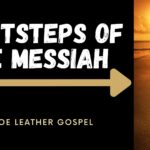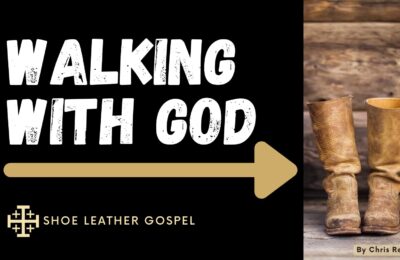Home | Podcast | Footsteps of the Messiah | The Beginning of the End
Episode 1: Welcome to Footsteps of the Messiah
Prophecy isn’t a fringe topic—it’s at the very heart of God’s redemptive plan. In this opening episode of Footsteps of the Messiah: The Beginning of the End, we set the stage for the entire series. Why does biblical prophecy matter? What does it reveal about Christ? And how can understanding the prophetic timeline deepen your walk with God?
We’ll introduce the chronological framework developed by Dr. Arnold Fruchtenbaum, previewing 11 key stages that walk us through the end-time events—from the Church Age to the Eternal State. You’ll discover that prophecy isn’t designed to confuse or divide, but to purify, encourage, and prepare the believer for Christ’s soon return.
Key Verse:
“For the witness of Jesus is the spirit of prophecy.” — Revelation 19:10 (LSB)
For more, read the companion blog post: Why Biblical Prophecy Still Matters Today
Next Episode: The Blessing of Prophecy — exploring why God promises a blessing to those who read and keep the words of this book.
Transcript
Episode 1: Welcome to Footsteps of the Messiah
Section 1: Opening Greeting
Welcome to Footsteps of the Messiah, a podcast from Shoe Leather Gospel—helping you walk step by step through the prophetic timeline of Scripture with clarity, hope, and Christ at the center.
I’m your host and Bible teacher, Chris Reighley—and I’m so glad you’re here.
Since this is our first episode of Footsteps of the Messiah, let me briefly tell you who we are and why this podcast exists.
Shoe Leather Gospel is a Bible teaching ministry dedicated to helping believers live out their faith in real life. We’re committed to teaching Scripture clearly, faithfully, and practically—walking book by book, doctrine by doctrine, and in this case, prophecy by prophecy—so that you don’t just know the truth, you can walk in it.
And Footsteps of the Messiah is our weekly teaching series focused on biblical prophecy—from the Church Age to the Eternal State—rooted in a literal, dispensational, pre-tribulational, and premillennial understanding of the Word of God.
This 10-part opening series is called The Beginning of the End, and it’s designed to give you a firm grasp on the prophetic timeline. It’s not about charts and speculation. It’s about confidence in God’s plan, clarity in His Word, and readiness in our daily lives.
Now, let me ask you something:
Have you ever tried to finish a jigsaw puzzle without the box top?
You stare at the pieces. Try to find the corners. Match the colors. But without the full picture, every fragment feels disconnected. And eventually, you’re left wondering if the image was ever meant to come together at all.
That’s how a lot of Christians feel about prophecy.
Some avoid it—too many beasts, bowls, and blood moons. Others obsess over it—linking every news headline to a chart, and every world leader to the Antichrist. Most quietly nod when it comes up… but secretly hope the conversation moves on.
And yet—over 25% of the Bible was prophetic at the time it was written.
That’s not fringe. That’s foundational.
God gave us the box top. He didn’t hide His plans behind riddles or codewords. He revealed them through prophets and apostles, through visions and parables, and ultimatelythrough Jesus Christ Himself.
As Revelation 19:10 reminds us:
“For the witness of Jesus is the spirit of prophecy.” (LSB)
In other words, biblical prophecy isn’t primarily about events—it’s about a Person.
Not about fear, but about focus.
Not speculation—but preparation.
So if you’ve ever felt intimidated by end times teaching—or maybe even disillusioned by the confusion around it—you’re not alone. But you are in the right place.
Over the next 10 episodes, we’ll move chronologically through the prophetic calendar using the framework developed by Dr. Arnold Fruchtenbaum in Footsteps of the Messiah—a framework built not on speculation, but on Scripture.
We’ll answer questions like:
- What is the Rapture—and is it really before the Tribulation?
- Why does God have two programs—one for Israel and one for the Church?
- How should we understand the Book of Revelation chronologically?
- What happens during the Millennial Kingdom and beyond?
But before we dive into all of that, we have to begin with the most important question of all:
Why does prophecy even matter?
Because if we don’t know why we’re studying this—if we treat it like a theological side quest—we’ll miss the whole point. Prophecy isn’t a cosmic countdown clock. It’s the heartbeat of hope. It reminds us that history is not a random spiral—it’s a divine sequence. And it’s all moving toward the return of Jesus Christ.
So as we open this first episode, here’s the invitation:
Don’t just survive the headlines—anchor yourself in the timeline of God.
Don’t let prophecy intimidate you—let it illuminate the One who promised to come again.
Let’s take the first step—together.
Section 2: Scripture + Prophetic Structure
Key Verse: Revelation 19:10 (LSB)
“For the witness of Jesus is the spirit of prophecy.”
Let’s open the Scriptures together—and not just to study prophecy, but to see Christ.
Because here’s the heart of it: biblical prophecy is not primarily about events. It’s about a Person. Jesus Christ is the Alpha and the Omega, the center of the story, the fulfillment of the promises, and the One to whom every prophetic word ultimately points.
That’s what Revelation 19:10 is telling us:
“For the witness of Jesus is the spirit of prophecy.” (LSB)
In other words: take Jesus out of prophecy, and you’ve missed the point entirely.
Prophecy, at its core, is Christ-centered truth about a future that leads to His exaltation and the consummation of His kingdom.
So as we begin this journey, here’s the foundation we’re building on:
What Is Prophecy For?
Some think it’s about prediction. Others think it’s about fear. But Scripture reveals a much better purpose: prophecy is preparation.
It prepares us to:
- Understand God’s plan (not just ours)
- Trust God’s timing (not just headlines)
- Walk in holiness (not fear)
- Live with urgency (not anxiety)
- Keep our eyes fixed on the One who is coming
Let me give you three passages that lay the groundwork for how we approach biblical prophecy in this podcast—and in life:
1. Revelation 1:3 (LSB)
“Blessed is he who reads and those who hear the words of the prophecy and keep the things which are written in it, for the time is near.”
This is the only book in the Bible that promises a blessing just for reading, hearing, and keeping its prophetic message. That tells us something important: prophecy is meant to be understood and obeyed, not avoided.
2. 2 Peter 1:19 (LSB)
“And we have as more sure the prophetic word, to which you do well to pay attention as to a lamp shining in a dark place…”
Peter is saying prophecy is like a lamp, not a flashlight to peer into the future, but a lantern to walk by. It gives light to our path in a world growing darker by the day.
3. Luke 24:27 (LSB)
“Then beginning with Moses and with all the Prophets, He interpreted to them the things concerning Himself in all the Scriptures.”
Even the risen Christ interpreted prophecy through the lens of His mission. From Genesis to Malachi, it all pointed forward to Him, and the story’s not over yet.
The Prophetic Framework We’ll Follow
To help bring clarity to these truths, we’ll use a clear and consistent interpretive structure throughout this series:
Literal, grammatical-historical interpretation within a dispensational framework.
Let’s define that a bit:
- Literal interpretation means we take the text at face value—unless the context clearly indicates otherwise (e.g., symbolic language that is defined in the passage).
- Grammatical-historical means we ask what the original words meant in their original context—what the author intended, not what we want to find.
- Dispensational means we recognize that God works in different ways in different ages, but always according to His one unified plan of redemption.
That’s why you’ll hear us talk a lot about terms like:
- The Church Age
- The Rapture
- Daniel’s 70th Week
- The Great Tribulation
- The Millennial Kingdom
- The Eternal State
These aren’t just theological ideas—they’re prophetic mile-markers on God’s redemptive timeline.
The Four Pillars of Prophetic Clarity
In this podcast, we’ll draw heavily from four primary sources of prophetic revelation:
- Daniel – Especially chapters 2, 7, 9, and 11. Daniel gives us the backbone of Gentile world empires, the vision of the 70 Weeks, and the rise of the Antichrist.
- Revelation – Chapters 6–22 lay out the sequence of judgments, the Second Coming, the Millennial Kingdom, and the New Jerusalem.
- The Olivet Discourse – Found in Matthew 24–25, Mark 13, and Luke 21—this is Jesus’ most detailed teaching on the end times.
- Fruchtenbaum’s Chronology – Based on over 800 Scriptures, Dr. Arnold Fruchtenbaum outlines the end times in 11 sequential stages, each anchored in the literal interpretation of Scripture.
We’ll walk through that 11-stage sequence more fully in Episode 3 and beyond—but just know this: we’re not piecing things together haphazardly. We’re following a roadmap, illuminated by Scripture, not shaped by speculation.
Why This Structure Matters
Without structure, prophecy feels like chaos. Without sequence, Revelation feels like a riddle. Without literal interpretation, the future feels unknowable.
But once you interpret prophecy plainly, consistently, and Christ-centeredly—everything begins to click into place.
You begin to see:
- Continuity between the Testaments
- Coherence between Daniel, Revelation, and Jesus’ teaching
- Confidence in what lies ahead—not because we know all the details, but because we know the One who does
Where We’re Headed
Here’s a quick preview of how the next few episodes will unfold:
- Episode 2 will explore why prophecy matters and the blessing promised to those who study it.
- Episodes 3–4 will define the rules of prophetic interpretation—so we avoid both confusion and error.
- Episodes 5–10 will introduce the dispensational framework, the timeline of Revelation, God’s distinct plan for Israel and the Church, and the key prophetic teachings of Jesus.
But every episode—no matter how deep or detailed—will always come back to this:
Prophecy is about Jesus.
His first coming was literal. His return will be too. And every promise in between is trustworthy and true.
So whether you’re just beginning your study of end times, or you’ve been reading prophecy for years, I pray this series helps you see not just what’s coming—but who is coming.
Let’s keep walking.
Section 3: Event-by-Event Exposition
In this episode, we’re not unpacking a specific event just yet—but we are laying the tracks for the entire prophetic journey.
Think of today as the mile-marker before mile one. We’re not yet in the heat of the Tribulation or standing at the gates of the Millennial Kingdom—but we are surveying the landscape, orienting our compass, and introducing the sequential framework we’ll use to walk through the end times with clarity and conviction.
So let’s talk about the roadmap: Dr. Arnold Fruchtenbaum’s 11-Stage Chronology of the End Times, which gives our podcast its name—Footsteps of the Messiah.
Dr. Fruchtenbaum—a Messianic Jewish scholar and founder of Ariel Ministries—has done for eschatology what a skilled cartographer does for unknown terrain. Drawing from over 800 passages of Scripture, he has outlined a literal, chronological sequence of the final events in God’s redemptive plan. And we’ll be using that sequence to guide every episode in this series and beyond.
Let’s walk through it briefly.
The 11 Stages of the End Times
(As presented in Dr. Fruchtenbaum’s prophetic chronology)
1. The Church Age
This is where we are right now. It began in Acts 2 with the outpouring of the Holy Spirit at Pentecost and will continue until the Rapture of the Church. During this time, God is calling out from every nation a people for His name—not to replace Israel, but to form the Body of Christ (cf. Acts 15:14, Romans 11:25).
Key Features:
- Indwelling of the Holy Spirit
- The Great Commission
- Spiritual gifts and church age doctrine
- Growing apostasy leading to the end of the age (2 Tim 3:1–5)
We’ll explore this fully in our later episodes—but here’s the key truth: the Church is not Israel. God has a distinct plan for each, and mixing the two leads to theological confusion and prophetic distortion.
2. The Translation of the Church (Rapture)
The Church Age ends with the sudden, unannounced return of Christ for His Church (1 Thessalonians 4:16–17; 1 Corinthians 15:51–52). This is not the Second Coming—it is the Rapture, the catching away of the saints, which occurs before the Tribulation begins.
Key Distinctions:
- Christ comes in the air (not to the earth)
- Believers are caught up
- It is imminent—no signs precede it
- It delivers the Church from the “hour of testing” (Rev. 3:10)
We’ll look carefully at the arguments for a pre-tribulational Rapture in future episodes, but for now, just know this: the Rapture is the next event on God’s prophetic calendar.
3. The Great Tribulation (Daniel’s 70th Week)
After the Rapture, a covenant is signed between the Antichrist and Israel, marking the start of a 7-year period of unprecedented global upheaval. This is Daniel’s 70th Week (Daniel 9:27), also known as the Time of Jacob’s Trouble (Jeremiah 30:7) or simply, the Tribulation.
This period is divided into two 3.5-year halves:
- The first half includes rising global power, false peace, and religious deception.
- The second half, triggered by the Abomination of Desolation (Matthew 24:15), is the Great Tribulation proper.
It includes:
- Seal, trumpet, and bowl judgments
- Global war and ecological disasters
- Persecution of Israel and believers
- Rise and fall of Babylon
- Antichrist’s reign and eventual demise
God’s wrath is poured out—but even in judgment, He offers mercy to those who repent.
4. The Campaign of Armageddon
The Tribulation culminates in the gathering of the nations against Jerusalem. What begins as a political and spiritual revolt against God turns into a military campaign spanning multiple stages—from Bozrah to the Valley of Jehoshaphat, and finally, Armageddon (Revelation 16:16).
Key Themes:
- Israel under siege
- Jerusalem half-captured (Zechariah 14:2)
- The remnant calls upon the Messiah (Matt. 23:39)
- Christ returns in glory, defeats the armies of the world, and sets foot on the Mount of Olives (Zechariah 14:4)
This is the visible, bodily Second Coming of Jesus.
5. The Second Coming of the Messiah
Unlike the Rapture, this is Christ’s return to the earth. He comes in power and great glory (Revelation 19:11–16), accompanied by the armies of heaven, to establish His kingdom, defeat His enemies, and redeem Israel.
Fulfilled prophecies:
- Every eye will see Him (Rev. 1:7)
- Israel will mourn for Him as for an only son (Zech. 12:10)
- Satan is bound (Rev. 20:1–3)
This is not symbolic. This is the King returning to reign on earth.
6. The Interval Period (75 Days)
Daniel 12:11–12 speaks of a period of 75 days following the end of the Tribulation. During this time, key judgments and cleansings occur:
- The judgment of the Gentile nations (Matthew 25:31–46)
- The resurrection of Old Testament and Tribulation saints (Daniel 12:2)
- The cleansing of the land and preparation of the Millennial Temple
It’s a transition periodbetween judgment and the kingdom.
7. The Messianic Kingdom (Millennium)
This is the literal 1,000-year reign of Christ on earth, centered in Jerusalem, where all promises to Israel, land, peace, temple, and restorationare fulfilled. Believers rule and reign with Him in glorified bodies (Rev. 20:4–6; Isaiah 2:1–4).
Key Features:
- Satan is bound
- Peace, prosperity, longevity
- Israel exalted among the nations
- Worship centered around Messiah and the rebuilt Millennial Temple
It’s the fulfillment of every covenant promise—not spiritually, but literally.
8. Satan’s Final Rebellion
At the end of the 1,000 years, Satan is released for a final test of the nations. Despite generations of peace, many still choose rebellion.
The result? Fire from heaven. Immediate judgment. Satan is cast forever into the Lake of Fire (Revelation 20:7–10).
This reveals the total depravity of man—and the unshakable justice of God.
9. The Great White Throne Judgment
This is the final judgment of the unsaved from all ages (Rev. 20:11–15). The books are opened. The dead are judged. No one whose name is not found in the Book of Life escapes the second death.
There is no appeal. Only justice.
This judgment does not include believers, who were judged for rewards at the Bema Seat after the Rapture.
10. The Eternal Order
Time gives way to eternity. A new heavens and a new earth are unveiled (Revelation 21–22). The New Jerusalem descends. God dwells with His people forever.
No more death. No more sin. No more curse. Just the face of God and the Lamb.
It’s not the end—it’s the beginning that never ends.
11. The Footsteps of the Messiah
This final category doesn’t represent a single event, but the sequential unfolding of all the above. It’s a reminder that prophecy doesn’t come to us in fragments or fiction—it comes to us as footsteps. Ordered. Connected. Purposeful.
As Psalm 37:23 says:
“The steps of a man are established by Yahweh, and He delights in his way.”
God has laid out each step of the prophetic calendar—not to confuse us, but to comfort and prepare us.
Where This Series Is Headed
Each future episode will dive deeper into one or more of these prophetic stages. We’ll explore key texts, define essential terms, and walk through how these events fit together with chronological clarity and theological coherence.
- Next week, we’ll explore the blessing promised to those who read and keep prophecy (Revelation 1:3).
- Then we’ll cover the rules of interpretation that keep us grounded in truth and avoid prophetic confusion.
- Soon after, we’ll break down Daniel’s 70 Weeks, the rise of the Antichrist, the purpose of the Tribulation, the return of Christ, and more.
But for now—rest in this: you don’t have to guess your way through the end times.
God has spoken.
And when He speaks, it’s not to satisfy curiosity—it’s to sanctify His people.
Let’s keep walking—one step at a time, through the footsteps of the Messiah.
Section 4: False Views Refuted
Let’s take a few minutes to clear away some common misunderstandings—because if we’re going to walk confidently through prophecy, we need to recognize where the road has often been misrepresented.
Prophecy has suffered in two ways:
- It’s been abused by sensationalism and date-setters,
- And it’s been ignored by theologians who treat it like a speculative side-topic—or worse, as irrelevant.
But Scripture won’t let us do either. So let’s address a few myths head-on.
❌ Myth #1: “Prophecy is too confusing to understand.”
This one’s a favorite excuse. And on the surface, it makes sense—dragons and beasts, trumpets and bowls, symbolic numbers and cosmic battles—it sounds confusing.
But here’s the truth: prophecy becomes clear when you apply consistent, literal interpretation.
Think about it this way: the prophecies about Jesus’ first coming weren’t vague or mystical. They were fulfilled literally.
- Born in Bethlehem (Micah 5:2)
- Rode into Jerusalem on a donkey (Zechariah 9:9)
- Pierced hands and feet (Psalm 22:16)
- Betrayed for 30 pieces of silver (Zechariah 11:12)
- Buried in a rich man’s tomb (Isaiah 53:9)
No allegory. No symbolism. Just fulfillment.
So if His first coming was literal—why wouldn’t His return be?
The confusion often comes when people switch interpretive gears. They interpret Genesis and Romans literally… but then turn Revelation into a metaphor. That inconsistency is the real source of confusion.
Prophecy is difficult when we abandon the rules. But when we interpret consistently, it becomes not only understandable—but profoundly encouraging.
❌ Myth #2: “Most prophecy already happened in AD 70.”
This is the claim of Preterism—the idea that most, or all, of Revelation was fulfilled in the past, specifically with the destruction of Jerusalem in AD 70.
It sounds tidy—but it simply doesn’t match the biblical data.
For example:
- Revelation describes global catastrophes—celestial events, ecological disasters, massive death tolls. That didn’t happen in AD 70.
- Revelation 11 speaks of two witnesses who prophesy for 1,260 days and are killed in the streets of Jerusalem—only to rise and ascend in view of the whole world.
- Revelation 19 shows Jesus returning on a white horse to strike the nations, defeat the Beast, and rule with a rod of iron.
None of that happened in the first century.
Preterism forces the text to fit a historical event it was never meant to describe. And in doing so, it erases the hope of a literal return and a coming kingdom.
Let’s be clear: the destruction of Jerusalem in AD 70 was significant. It was judgment. It was prophetic.
But it was not the fulfillment of Revelation 6–22.
❌ Myth #3: “Prophecy is only about Israel—and doesn’t apply to me.”
Some believers think prophecy is a Jewish thing. Or that it’s only about end-time headlines, and has little relevance to their daily walk.
But that couldn’t be further from the truth.
Yes—God has a plan for Israel. And yes—it is distinct from His plan for the Church.
But prophecy is for all God’s people.
Paul wrote to the Church in Thessalonica about the Rapture. Peter called us to live in holiness because of the Day of the Lord. John received Revelation to be read aloud in the churches. Even Jesus’ longest recorded sermon—the Olivet Discourse—is prophetic and pastoral.
If you’re a Christian, prophecy matters because:
- It reveals the character of God: holy, faithful, sovereign.
- It shapes how we live: watchful, hopeful, and holy.
- It reminds us where we’re headed: to glory, not wrath.
To dismiss prophecy because it centers on Israel is like ignoring the New Testament because it was written to first-century churches. God’s Word is always for His people—even when it’s not directly about us.
❌ Myth #4: “Studying prophecy causes division.”
This one is often used as a trump card: “Let’s not argue about prophecy—it just causes fights.”
But here’s the irony: bad interpretation causes division. Rightly handling the Word of truth brings clarity and unity.
2 Timothy 2:15 says:
“Be diligent to present yourself approved to God as a workman who does not need to be ashamed, accurately handling the word of truth.”
Avoiding prophecy doesn’t create unity—it creates confusion.
Refusing to study it doesn’t keep us humble—it keeps us ignorant.
And pretending like it doesn’t matter doesn’t protect the Church—it robs us of confidence, perspective, and hope.
When prophecy is taught faithfully, humbly, and clearly—it edifies the Church and glorifies Christ.
So if we want to be faithful to the full counsel of God, we must embrace prophecy—not as a curiosity to be debated, but as Scripture to be obeyed.
Let’s land this section with a simple reminder:
“For God is not a God of confusion but of peace, as in all the churches of the saints.”
—1 Corinthians 14:33 (LSB)
Clarity comes from the Spirit.
Confusion comes from man.
And prophecy—when handled rightly—brings light, not darkness.
Let’s keep walking.
Section 5: Theological + Devotional Insights
Let’s step back for a moment.
We’ve covered a lot in this episode—frameworks, chronologies, myths refuted—but before we close, let’s pause and remember the heart behind it all.
Prophecy is not about panic. It’s about a Person.
It’s not just information—it’s formation.
It doesn’t lead us to predict the future. It leads us to prepare for the King.
So here’s the question I want us to consider:
What does prophecy reveal about the character of God?
Because when you study prophecy—not just charts and terms, but the full counsel of what God has revealed about the end—you begin to see His heart with stunning clarity.
1. God’s Sovereignty
Prophecy reminds us that God is not reacting to history. He’s writing it.
Every empire rise… every shaking of the nations… every movement toward the end—it all unfolds on God’s timetable.
Isaiah 46:9–10 says:
“For I am God, and there is no other… declaring the end from the beginning and from ancient times things which have not been done, saying, ‘My counsel will be established, and I will accomplish all My good pleasure.’” (LSB)
He’s not scrambling to catch up with the headlines. He’s not waiting for poll numbers. He’s not surprised by war, rebellion, or apostasy.
God is in control—and that brings peace.
2. God’s Faithfulness
When you trace prophecy across Scripture, you start to notice a pattern: God always keeps His word.
He kept His promises to Abraham.
He fulfilled His Word through the prophets.
He brought Jesus exactly as foretold—born of a virgin, betrayed, crucified, and risen.
And He will fulfill every word He’s spoken about His return.
Numbers 23:19 says:
“God is not a man, that He should lie… Has He said, and will He not do it? Or has He spoken, and will He not establish it?” (LSB)
That means the same God who kept every promise at the First Coming will keep every prophecy about the Second.
It means we can trust Him—not just for our past salvation, but for our future hope.
3. God’s Holiness
Prophecy also reveals the judgment of God—and that can be sobering.
Sometimes we skip over those parts: the seals, the trumpets, the bowls, the wrath poured out. But they’re not there to terrify us. They’re there to awaken us.
Because God is not indifferent to sin.
He doesn’t wink at rebellion.
He will judge the nations—and every individual who rejects the offer of grace.
Hebrews 10:31 reminds us:
“It is a terrifying thing to fall into the hands of the living God.” (LSB)
That’s not fear-mongering. That’s reality.
And prophecy forces us to take it seriously.
But even here—His holiness is beautiful. Because it means justice will be done. Evil will not win. The Judge of all the earth will do right.
4. God’s Mercy
But judgment is never the whole story.
Even in the darkest prophetic scenes—God is reaching, warning, wooing.
In the Tribulation, He sends 144,000 Jewish evangelists (Rev. 7).
He appoints two witnesses in Jerusalem.
He even sends an angel to proclaim the gospel to every nation (Rev. 14:6).
Why?
Because God is not willing that any should perish, but that all should come to repentance (2 Peter 3:9).
His mercy runs alongside His judgment. His patience delays His wrath. And every page of prophecy whispers, “Come to Me, and live.”
5. God’s Glory
And ultimately, prophecy points us forward—to the coronation of the King.
Every judgment leads to justice.
Every kingdom leads to the Kingdom.
Every footstep of the Messiah leads to His throne.
Philippians 2:10–11 says:
“…at the name of Jesus every knee will bow… and every tongue will confess that Jesus Christ is Lord, to the glory of God the Father.” (LSB)
That’s where history is headed. Not toward chaos. Not toward despair.
Toward glory.
Toward the triumph of Jesus Christ.
And when you see that clearly, when your eyes are fixed on the One who is coming, everything changes.
Devotionally, What Does This Produce in Us?
Prophecy isn’t just for theologians. It’s for disciples. And it shapes how we live.
Let me give you three ways:
1. Purity
“And everyone who has this hope fixed on Him purifies himself, just as He is pure.” —1 John 3:3
When you know Jesus could return at any moment, you don’t play games with sin. You live clean. You live ready.
2. Perseverance
“Encourage one another… and all the more as you see the Day drawing near.” —Hebrews 10:25
Prophecy strengthens the weary. When the world feels broken, it reminds us: this isn’t the end. Better is coming. The King is on His way.
3. Perspective
“Set your mind on the things above, not on the things that are on earth.” —Colossians 3:2
Prophecy lifts our eyes. It teaches us to live today in light of that Day.
So as we close this section, here’s the devotional truth I want to leave with you:
Prophecy is not just about what’s coming. It’s about who we’re becoming.
It doesn’t just show us a calendar—it shows us Christ.
It doesn’t just describe future events—it reshapes present hearts.
It doesn’t just predict—it prepares.
So open your Bible. Lift your eyes. Purify your heart.
Because the One who is coming… is the One who knows you, loves you, and has prepared a place for you.
Let’s keep walking.
Section 6: Call to Readiness
So, what do we do with all of this?
We’ve talked about prophecy. We’ve talked about the end times. We’ve talked about Israel, the Church, the Rapture, the Tribulation, and the return of Jesus Christ.
But before we move into the rest of this series… we need to ask a deeply personal question:
Am I ready?
Not just ready to study. Not just ready to learn.
Ready to live in light of the return of Jesus Christ.
Let me put it another way:
If Jesus came back today, how would it change your priorities?
Would anything need to shift in your calendar?
In your relationships?
In your walk with God?
Because He could.
And one day, He will.
Prophecy Is a Mirror
James 1 tells us that the Word of God is like a mirror. When we open it, it shows us who we really are—and who God is calling us to become.
Prophecy functions that way too.
It reminds us that life is short.
That eternity is real.
That decisions matter.
And that today isn’t just another Tuesday—it’s one day closer to the return of Christ.
This isn’t about scaring people. It’s about sobriety, clarity, and urgency.
As Romans 13:11 says:
“It is already the hour for you to awaken from sleep; for now salvation is nearer to us than when we believed.” (LSB)
So here’s my challenge to you—the first of many throughout this series:
Action Steps for This Week
1. Read Revelation 1.
Slow down. Let it speak. Notice how it begins and ends with Jesus.
2. Write down one prophecy you’ve never understood—or maybe even avoided.
We’ll probably cover it. But for now, name it. Bring it before the Lord with curiosity, not fear.
3. Pray this simple prayer of readiness:
“Lord Jesus, let prophecy not frighten me—but focus me. Help me to long for Your return, and to live like You could come today. Make me holy. Make me hopeful. Make me ready.”
Let’s Remember the Big Truths
Let’s close this first episode by anchoring a few truths in your heart:
You don’t need to guess your way through prophecy.
God gave us the box top. He wants you to understand His plan.
We’re not following trends—we’re following a timeline.
Not made by man. Not shaped by culture. Revealed by God.
Prophecy isn’t about prediction—it’s preparation.
It’s not for hype. It’s for holiness. It’s not for debate. It’s for discipleship.
This is the journey we’re on. And we’re just getting started.
A Personal Word Before You Go
My friend, if you’ve made it this far, thank you. You’re not here by accident.
You may not feel like a prophecy expert.
You may have more questions than answers.
You may feel overwhelmed by the world and confused by the Church.
But here’s the good news:
God is not confused.
He is not overwhelmed.
And He is not done.
Jesus is coming. And every step in this prophetic timeline is another reminder that our King is not late—He is right on time.
So let’s keep walking. Let’s keep watching. Let’s keep waiting—not passively, but actively. With purity, urgency, and joy.
🎙 Next Time on Footsteps of the Messiah:
In Episode 2, we’ll unpack the blessing of prophecy—and why God promises favor to those who read, hear, and keep the words of this book.
Until then, stay watchful. Stay ready.
Because prophecy isn’t just prediction—it’s preparation.
See you out on the trail.






